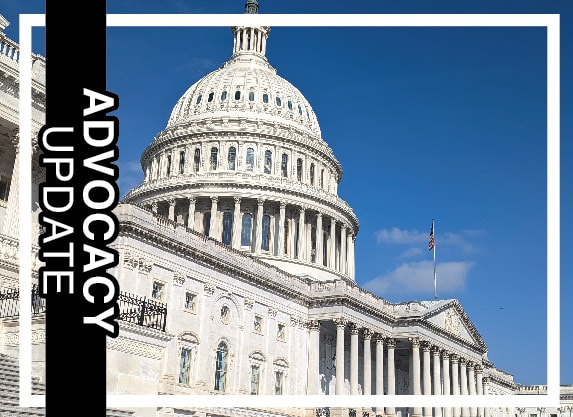 Chesney Garnos Chesney Garnos by Chesney Garnos, Director of Political & Grassroots Affairs In Congress. It's been over 20 days since we have had a Speaker of the House, and the pathway to speakership is not getting clearer soon. There are now nine candidates running for the position. There will be more to come on the outcome of these nine candidates and if we will be any closer to electing any candidate as our next speaker, hopefully by later this week. The House of Representatives is scheduled to vote Tuesday regarding a new Speaker. No legislative business on the floor is scheduled at this time. Until then, things in the house are primarily at a standstill. As for the Senate, they will be headed back into session on Tuesday, and expected to resume consideration of appropriations and supplemental appropriations legislation. NCUA Board nominee addresses Senate hearing; DakCU and CUNA weigh in. Last week, the Senate Banking Committee held a hearing on October 19th for the nomination of National Credit Union Administration (NCUA) Board nominee Tanya Otsuka. Senators of the committee also had the opportunity to ask the board nominee questions on various credit union issues and positions. If confirmed, Otsuka would replace the current Board Member, Rodney Hood, whose term expired in August. Before the hearing on Otsuka's nomination, our DakCU advocacy team had a chance to weigh in on potential questions for the nominee by providing some questions and stances to Senator Rounds' office. We also provided a short briefing to both the South Dakota and North Dakota delegations to ensure credit unions' voices were at the table for this discussion on the nominee. CUNA and NAFCU additionally submitted a joint letter to the committee outlining critical issues of importance to credit unions. Senate passes resolution of disapproval for CFPB's 1071 rule. The Senate passed the Congressional Review Act (CRA) resolution of disapproval last week. This act stops the Consumer Financial Protection Bureau (CFPB) from enforcing its Dodd-Frank Section 1071 small business data collection rule. CUNA wrote in support of this resolution. What does that mean exactly? Supporting the resolution would void the 1071 rule through the Congressional Review Act. The 1071 rule, finalized in March of this year, would require credit unions to collect and report specific data on credit applications. It now moves to the House of Representatives for consideration. On the radar: Debit card interchange changes would hurt consumers. Interchange remains a topic we are keeping on our radar, and for good reason. The Board of Governors of the Federal Reserve (FRB) has called for an open meeting on October 25th, 2023, to discuss proposed revisions to the Board's debit interchange fee cap contained in Regulation II. This is a significant concern to credit unions and consumers. CUNA, NAFCU, and other organizations wrote to the Federal Reserve Board, urging the Board to reject merchant requests that would change debit card interchange fees. This letter discussed how regulation II has caused economic harm and burden to many of our members and their customers, despite merchant talking points. More specifically, it went into the details of how small businesses are harmed by the Durbin Amendment's “exemption.” This “exemption” of smaller financial institutions has proven to cause issues, mainly because the interchange market needs to insulate smaller issuers from harm. Finally, the letter expresses disappointment that the Federal Reserve has refused to acknowledge that community financial institutions face rising costs and falling revenues because of existing Regulation II rules. More on the interchange fight. We are keeping a close watch on credit card interchange. So far, over 100,000 credit union advocates have urged senators to oppose efforts on the big box bailout bill to cap credit cards' annual percentage rate at 18 percent. Other industries vehemently oppose this big box bailout bill on interchange (S. 1838/H.R. 3881). To sum it up, this bill would allow merchants to process credit card transactions based solely on which network offers the lowest cost for them. It would also take away the right of consumers to choose their preferred credit card network. By continuing to oppose S. 1838/H.R. 388, we can best ensure to keep our consumers' and businesses' data safe. We'll be back with more advocacy news for your inbox next week! Feel free to contact me with any advocacy questions or concerns at cgarnos@dakcu.org. Comments are closed.
|
The MemoThe Memo is DakCU's newsletter that keeps Want the Memo delivered straight to your inbox?
Archives
May 2024
Categories
All
|
|
Copyright Dakota Credit Union Association. All Rights Reserved.
2005 N Kavaney Dr - Suite 201 | Bismarck, North Dakota 58501 Phone: 800-279-6328 | info@dakcu.org | sitemap | privacy policy |





